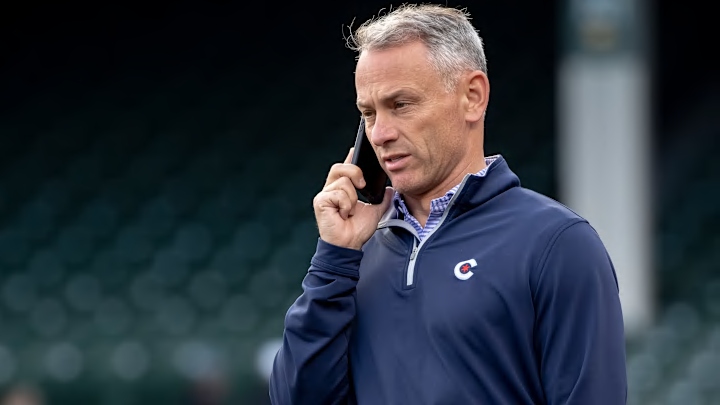The Chicago Cubs entered the trade deadline with an eye toward 2025, and it's hard to blame them. They've been one of the worst teams in the majors since the start of May, and their chances of getting to the postseason have been incredibly slim for a while.
While the Cubs appeared to be major sellers on paper, they only made two moves. One of those moves saw them acquire an All-Star. It was a strange deadline for Jed Hoyer and the Cubs, to say the least.
There was definitely some good in the moves that the Cubs made, but Hoyer will have some regrets when looking back at this year's deadline.
For more news and rumors, check out MLB Insider Robert Murray’s work on The Baseball Insiders podcast, and join the discord to get the inside scoop between now and the MLB offseason.
3) Jed Hoyer will regret prioritizing Isaac Paredes in trade talks
Isaac Paredes is a really good player who is under club control through the 2027 campaign. Normally, acquiring a player of his caliber would be seen as only a good thing, especially with that kind of team control. While Paredes is a great player, he's far from a great fit at Wrigley Field.
Paredes is a dead pull hitter, boasting a 51.8 percent pull rate according to Baseball Savant. While that might work at Tropicana Field where it is only 315 feet down the left field line, it's 355 feet down the line at Wrigley Field. His power numbers would've been way down had he played at Wrigley Field over the last three seasons.
Paredes ranks in the 25th percentile or below in virtually every batted ball metric according to Baseball Savant. For him to succeed at Wrigley Field, he's going to have to hit the ball a lot harder and a lot farther than he has in Tampa Bay. The track record is solid, but again, you have to question the fit.
While it's hard to knock Hoyer for acquiring a 25-year-old with club control who is as good as Paredes is, it's easy to question his fit in Chicago. There's a good chance that as time passes by, the Cubs might've been better off in hindsight going after someone who fits better in their home ballpark.
2) Jed Hoyer will regret trading Christopher Morel in the middle of a down year
Not many, if any players were in trade talks more than Christopher Morel was over the offseason. It felt as if the Cubs were in on any available big-name player and were using Morel as the centerpiece in all conversations.
The Cubs wound up holding onto the now 25-year-old, but he took a step back from last season's emergence. Morel hit 26 home runs and had a .821 OPS in just 107 games last season, but slashed .199/.302/.373 with 18 home runs in 103 games this season.
What makes Morel's offensive struggles worse is the fact that he still has not found a defensive position. He played third base most of the time this season in a Cubs uniform, but struggled there.
It feels as if the Cubs had sold low on Morel, a player who despite his shortcomings, has immense talent. We saw that talent last season and haven't quite this season. Using him and a pair of prospects to acquire Paredes, a player who does not fit well, could easily be something Hoyer regrets.
Christopher Morel with @RaysBaseball:
— MLB (@MLB) July 31, 2024
2 games, 2 homers 💪 pic.twitter.com/eJXNG6FLK5
Morel has already tried to make the Cubs regret trading him by launching a pair of home runs in his first two games as a Ray. The second one happened to be down the left field line, where Paredes used to go constantly.
1) Jed Hoyer will regret holding onto Jameson Taillon in this seller's market
While Hoyer might have his regrets when it comes to the Paredes deal, he might also regret sitting on his hands when he could've sold incredibly high on Jameson Taillon.
The reason Hoyer held onto Taillon is quite simple. He's under contract through 2026 on a reasonable $18 million AAV. He can help the Cubs compete in the future, which is what the Cubs are going for. With that being said, though, it was foolish for Hoyer to not trade him when thinking about what the return could've been.
Taillon has a 3.35 ERA in 18 starts and 104.2 innings of work this season. His ERA sat below 3.00 before a rough last start before the deadline. The right-hander has completed at least six innings in 10 of his 18 starts, failing to complete five frames only three times. His consistency would've been something many other pitching-needy teams cherished.
Losing him might've hurt their chances of competing in the future, but why couldn't the Cubs trade him while his value was high in a clear seller's market and then spend the $18 million on a different starter in free agency over the offseason? This feels like a major missed opportunity after looking at what other starting pitchers brought back on the open market.
